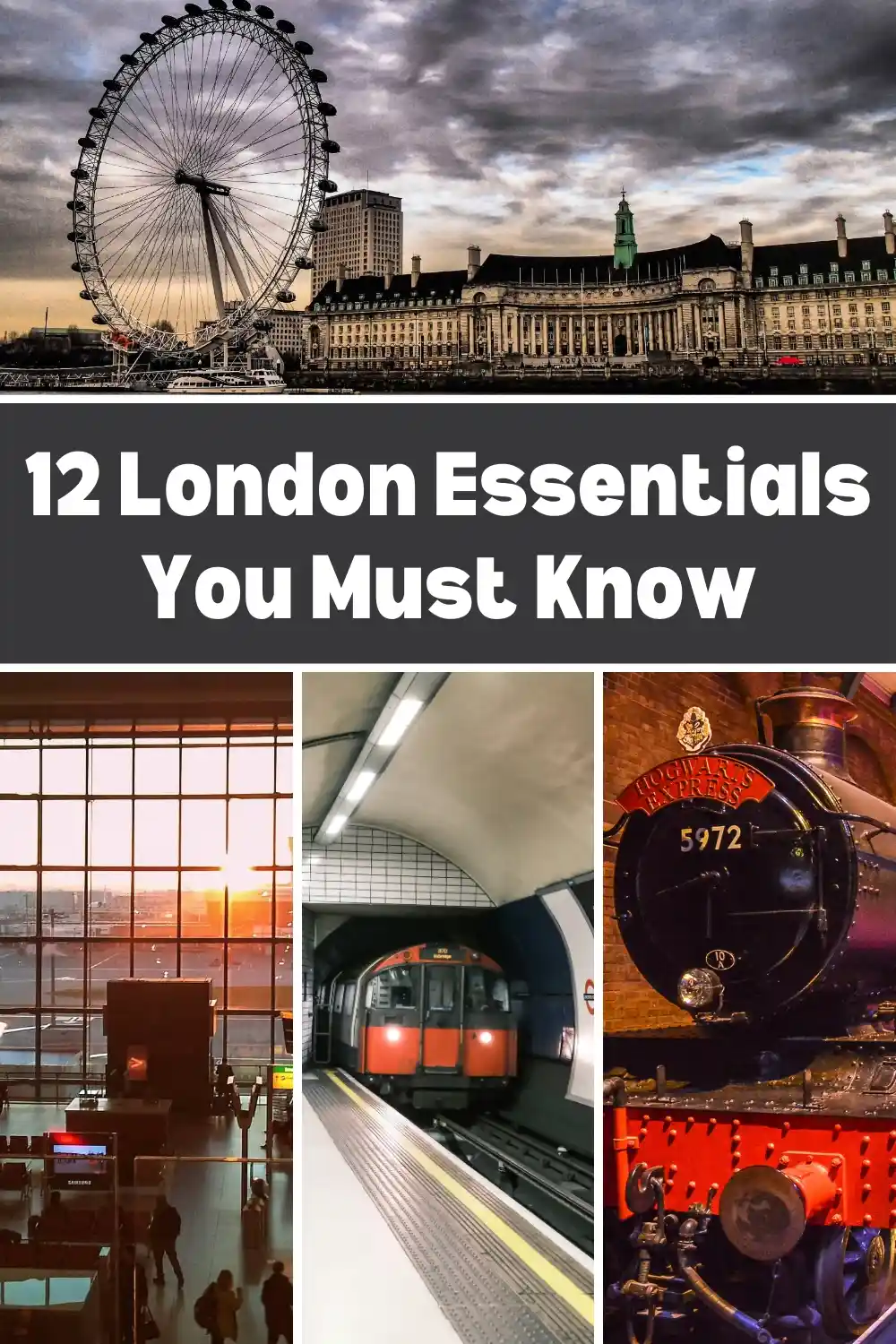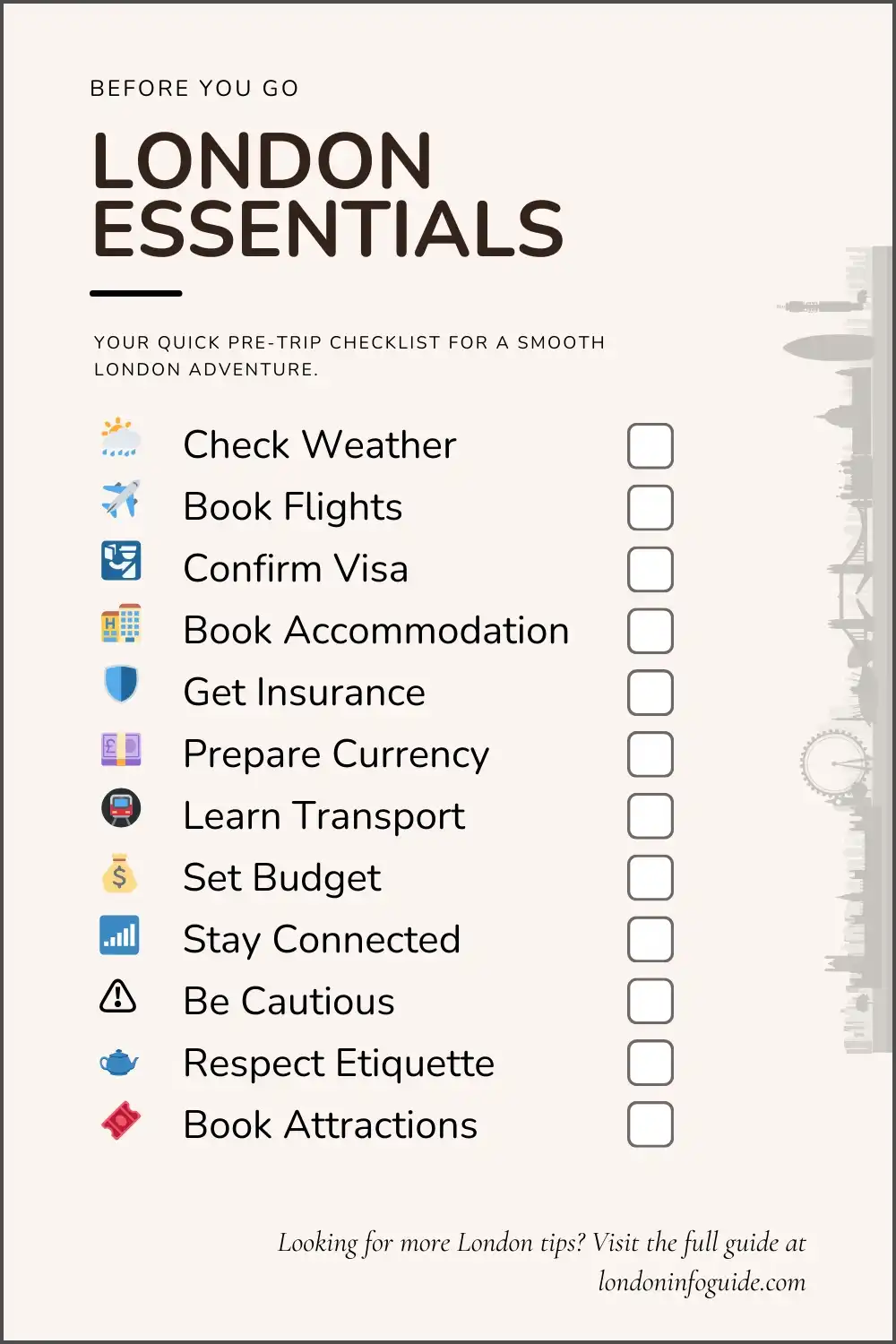- Home
- Where Is London In UK
- Things to Know Before Visiting London
things to know before visiting london
Essential Tips for First-Time Travellers
We’ve all been on holiday and realised we forgot something important too late. This guide covers all the things to know before visiting London, so you can avoid common mistakes and travel smarter. From transport and money tips to local etiquette and safety, we have got you covered.
Use the index below to jump to any section, and follow the links throughout the page for even more helpful travel info.
Quick Index: Things To Know Before Visiting London
- Know the Weather in London
- Book Flights in Advance
- Visa & Travel Authorisation for the UK
- Reserve Accommodation Early
- Why You Need Travel Insurance
- Currency & How to Pay in London
- How to Use London’s Transport
- Budget Smartly: Costs to Expect
- Stay Connected: SIM, WiFi & Travel Apps
- Stay Safe & Avoid Tourist Scams
- Know the Local Etiquette
- Book Attractions in Advance
- Frequently Asked Questions: London Essentials For Your Travels
1. Know the Weather in London
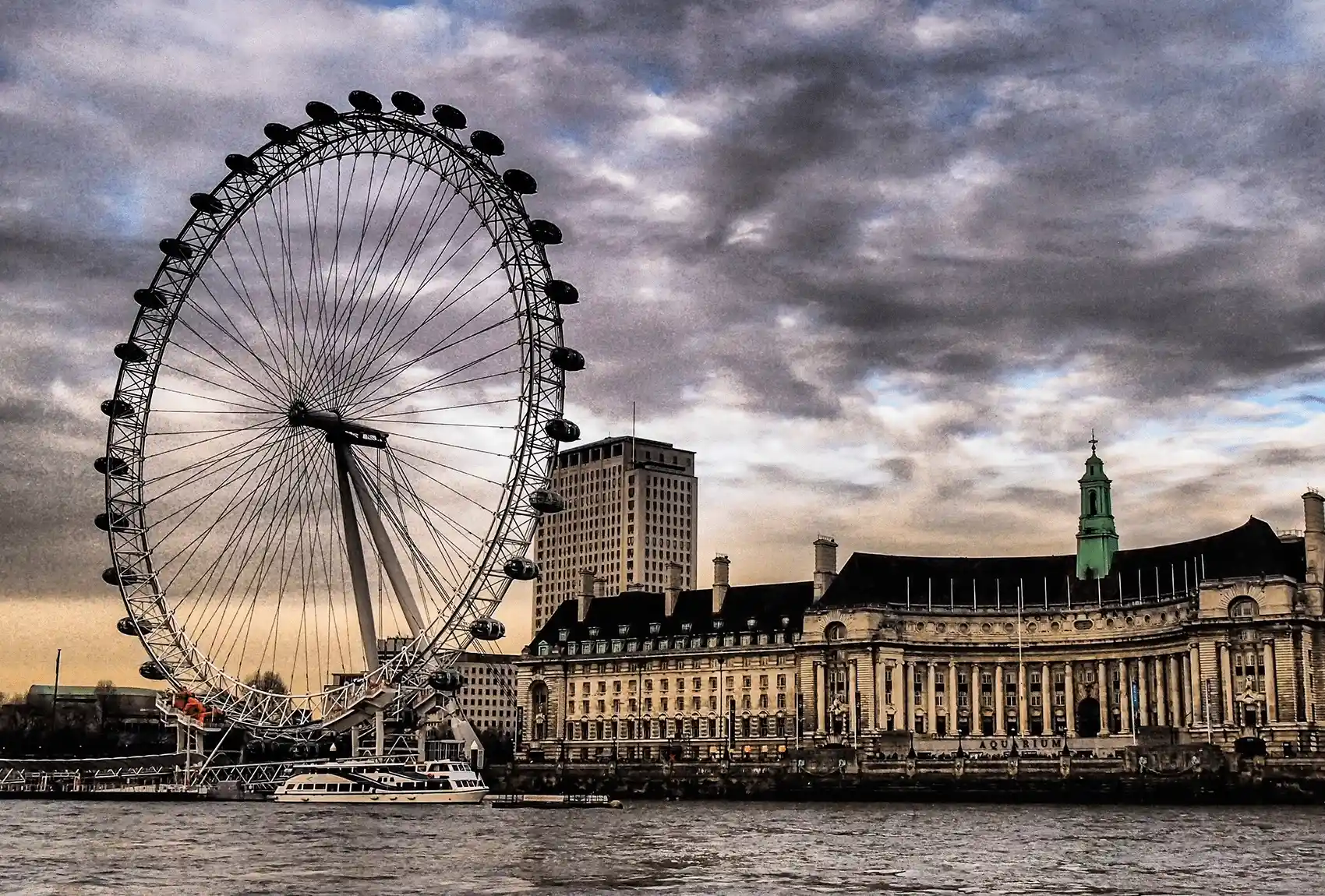 Iconic View of the London Eye
Iconic View of the London EyeThe weather in London can be unpredictable no matter the season you visit. In summer, it could be sunny one minute and rainy the next. Summers aren't always hot either as not every day is scorching. Winter, on the other hand, is a day-to-day experience. You might have a cold, gloomy day with no rain, then the next day could be wet. Snow is extremely rare, even in the depths of winter.
When we travel to London, we always check the weather in advance so we know what to expect and what to pack. We recommend using apps like BBC Weather or AccuWeather for reliable, on-the-go updates.
London is great for indoor attractions, so don’t worry too much if you get caught in some rain as there's always something to do! Check out our list of rainy-day things to do in London if the weather turns on you.
🎒 Packing Suggestions
- Layered clothing — best for unpredictable weather swings
- Umbrella or light raincoat ☔
- Sunblock (yes, even in London in summer!)
- Comfortable closed shoes
- A warm jacket or jumper
🔗 Know what to pack and wear when travelling to London.
🌡️ Typical Temperatures
- Summer: 18–24°C
- Winter: 2–8°C
🔗 For monthly weather breakdowns, visit our full London Weather Guide.
Your Downloadable London Essentials Checklist
2. Book Flights in Advance
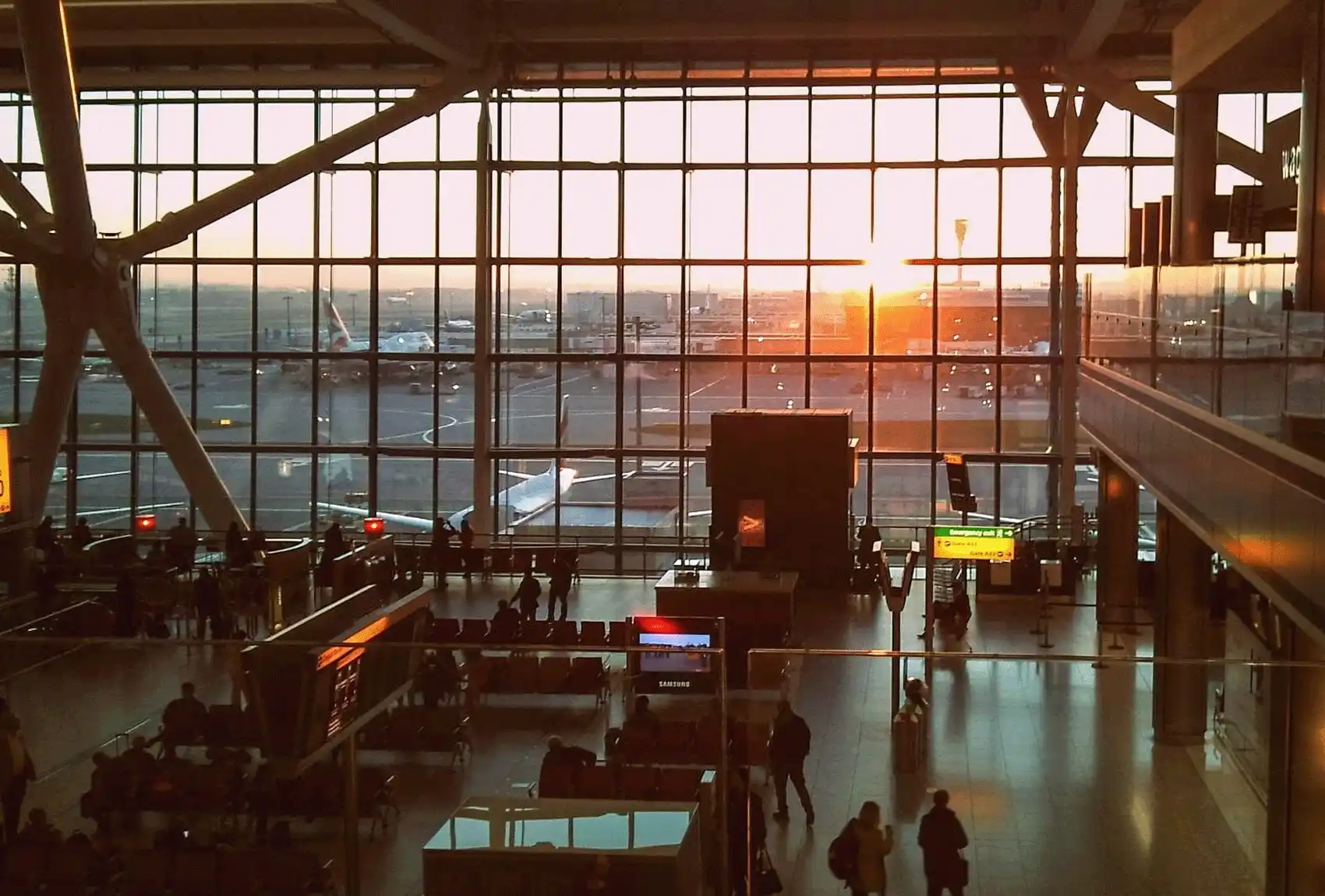 Heathrow Airport at Sunrise
Heathrow Airport at SunriseThis isn’t just advice for London, it applies to any trip you plan. But since we are focusing on London, once you've decided to travel, the first thing to check is flights and how to get there. London is a city served by thousands of flights every day, so finding options isn’t hard. However, flight prices can be very expensive, especially when booked at the last minute.
The way we do it is like this. We search for flights to London across different airlines and compare the prices and what's included. We usually go for a 20kg checked bag and hand luggage, which is pretty standard. If you're only taking a backpack, the price will be cheaper, so keep that in mind when planning.
We usually book directly through airline websites rather than third-party comparison sites. We just prefer it, however, checking out and booking from comparison websites is not a bad idea at all. That said, sites that show multiple airline options can sometimes give better prices, so it is worth checking both.
💡 Booking Tips
- Book at least 6 to 8 weeks before your travel date
- Check what’s included in your fare (baggage, meals, etc.)
- Always have your passport and credit card ready at checkout
- Be aware: your booking isn’t confirmed until you pay
🛄 Airline Comparison Advice
- Checked bags (20kg) add cost so consider if you need them or how many you need.
- Compare what’s included between airlines before you decide
- Budget airlines might look cheaper, but fees can add up quickly
🛬 London Airports to Choose From
- Heathrow (LHR) – Major international hub
- Gatwick (LGW) – Also widely used for international travel
- Luton (LTN) – Mostly budget airlines
- Stansted (STN) – Popular with low-cost carriers
- London City Airport (LCY) – Closest to the city centre but smaller
📍 We’ve flown into several of these and can tell you. The airport you land at can really affect both your cost and your transport time into the city.
Tip: Make sure your passport is valid for at least 6 months before travelling to London. Also double-check that none of your important cards will expire during your trip — including your ID card, credit/debit cards, medical card, and driving licence (especially if you plan to drive).
3. Visa & Travel Authorisation for the UK
 UK Border at Airport Terminal
UK Border at Airport TerminalAs of April 2025, many travellers will need a Travel Authorisation (ETA) to enter the United Kingdom. This is not a traditional visa, however, a digital pre-approval that you apply for online using the official UK Government app or website.
The ETA is valid for 2 years or until your passport expires, whichever comes first. You will need to apply for this before boarding your flight or train into the UK.
🌍 Who Needs an ETA?
- Travellers entering the UK for short holidays or business trips
- Those who previously didn’t need a visa may now need an ETA
- It is best to check out the official website for exact details.
Not everyone needs an ETA. Some nationalities remain exempt, so it's important to check your eligibility in advance.
📝 Who Needs a Visa Instead?
- Travellers staying in the UK for more than 6 months
- Anyone coming to work, study, or live temporarily (over 1 year)
- Visitors from certain countries, especially outside of Europe
💡 Important Notes
- The UK is no longer part of the European Union
- EU citizens don’t need a visa for short holidays
- However, they must travel with a valid passport — national ID cards are no longer accepted
🔗 Always use the official UK Government website to check your visa or travel authorisation status:
www.gov.uk/check-uk-visa
Quick Facts: Things to Know Before Visiting London
🔌 Power Plugs: In the UK, Type G plugs (230V, 50Hz) are used. Don’t forget your adapter.
🚗 Driving Side: People drive on the left. Cars have right-hand steering wheels.
🗣️ Language: The official language is English, with a range of British accents.
🏙️ Capital City: London is the capital of the United Kingdom.
💰 Currency: The local currency is British Pounds (£ - GBP)
📱 Emergency Number: Dial 999 for police, fire, or ambulance services.
🕒 Time Zone: London follows GMT or BST (British Summer Time) depending on the season.
🌦️ Weather: It is possible to have sunshine, clouds, and rain all on the same day.
4. Reserve Accommodation Early
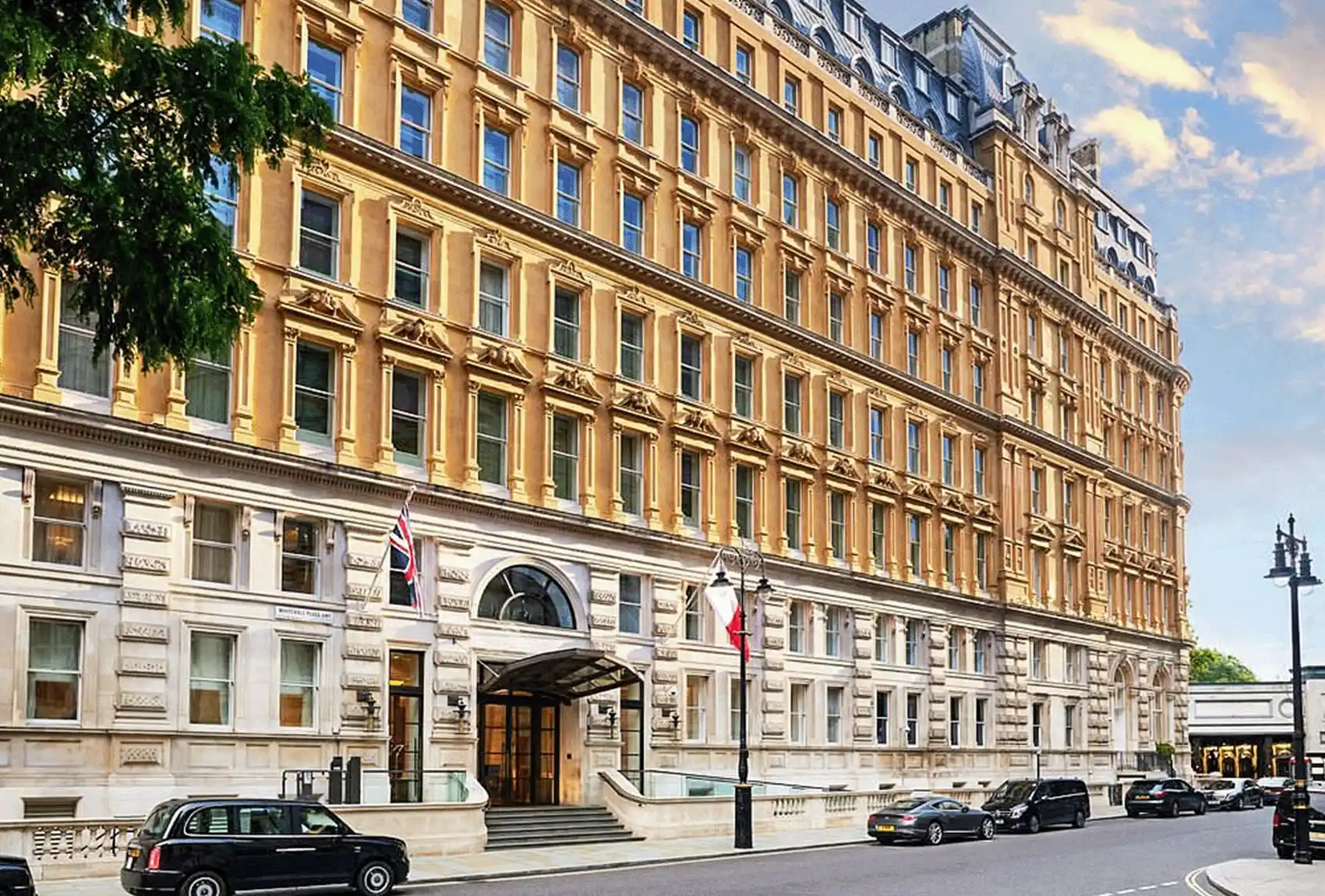 Exterior of Corinthia Hotel in London
Exterior of Corinthia Hotel in LondonAccommodation is usually the next thing to book, or sometimes even the first. There are hundreds of places to book accommodation, however, our go-to source is Booking.com or directly from the hotel’s website.
Why Booking.com? They offer a user-friendly site with thousands of hotel options and easy-to-use features. Their pay-later functionality for most hotels gives you the flexibility to reserve multiple hotels without spending anything upfront. Just remember to cancel the ones you don't need later.
Always ensure that the hotel you are booking offers refunds and check the cancellation policy period carefully. Booking your accommodation early gives you access to more hotels and usually guarantees a better price. Booking.com often runs discounts too, so keep a lookout.
🔍 Helpful Booking Filters
- Sort by price, location, guest rating, or included amenities
- Look for properties with free cancellation
- Filter for breakfast included or nearby transport stations
🛏️ Location vs Price Example
Choosing where you stay doesn’t just affect cost. It also affects how much time and money you’ll spend getting around.
- Staying in central areas like Soho means shorter travel times and lower transport costs
- Staying further out, like in Paddington, may offer cheaper rooms but more time on the Tube and higher transport expenses
You need to weigh the pros and cons carefully.
🏠 Hotel or Apartment?
While we prefer hotels, apartment rentals like Airbnb may be better suited for longer stays or group travel.
🔗 Check out our complete guide on the best areas and places to stay in London for every type of traveller.
5. Why You Need Travel Insurance
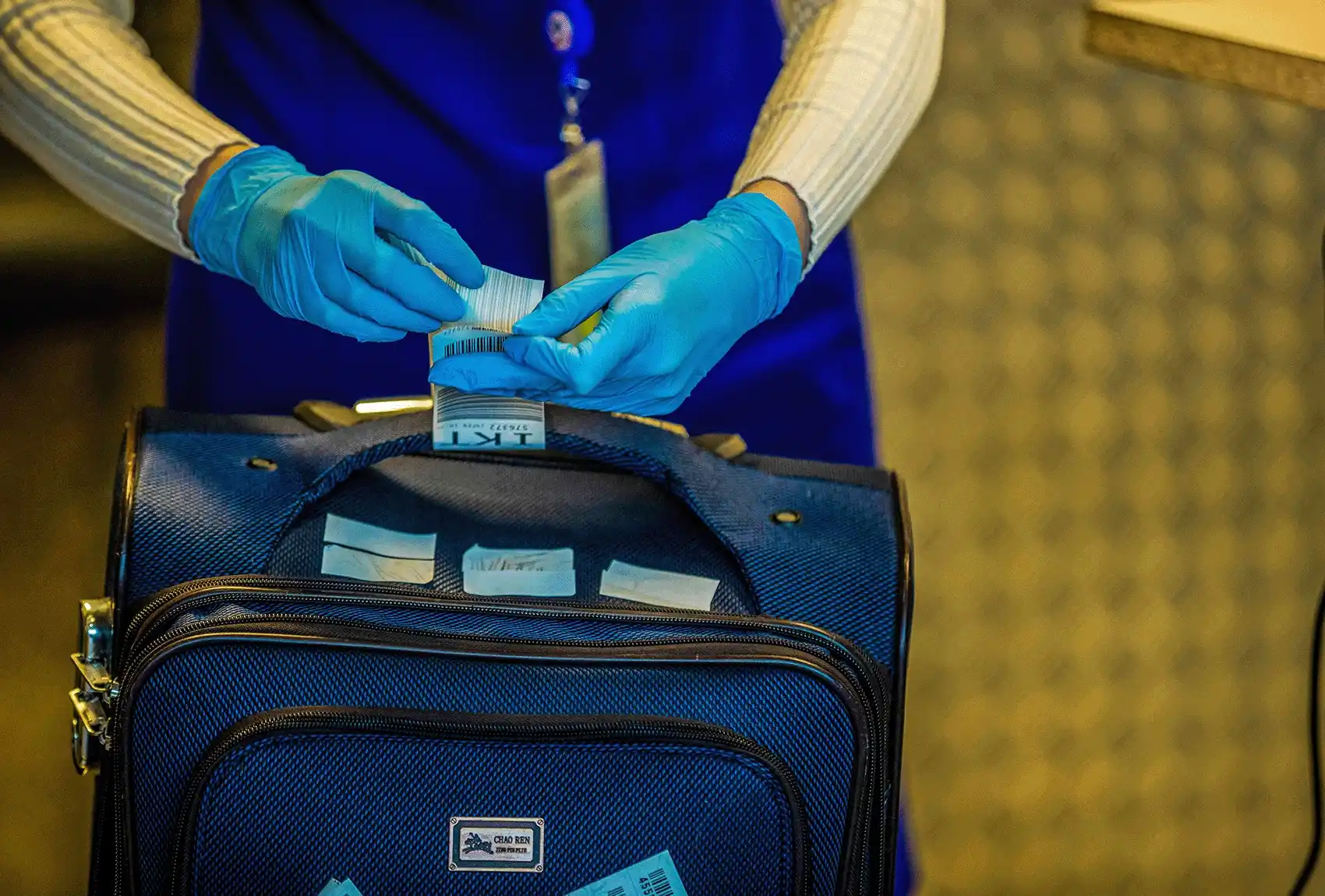 Checking Tags on Damaged Luggage
Checking Tags on Damaged LuggageInsurance! An important thing to have, as it may cover unexpected costs that come up during your holiday. Whether your flight is cancelled, you experience a medical emergency, lose your belongings, or your trip is cut short, travel insurance can offer peace of mind.
The insurance must always be booked before you travel to the country. Although we see it as an additional cost, we prefer not to take the risk, but remember, coverage depends on your policy and provider.
Before purchasing, always check:
- What’s included and excluded.
- The claim process and what documents are required.
- Whether the policy includes cover for delays, cancellations, lost baggage, and medical emergencies.
📝 Important Tips
- Compare policies from trusted providers and make sure you fully understand the terms.
- Keep a copy of your insurance policy and emergency contact numbers with you while travelling.
- Some credit card providers include limited travel insurance but check with yours before buying a separate policy.
Related Guide: Our View on visiting London for the first time
6. Currency & How to Pay in London
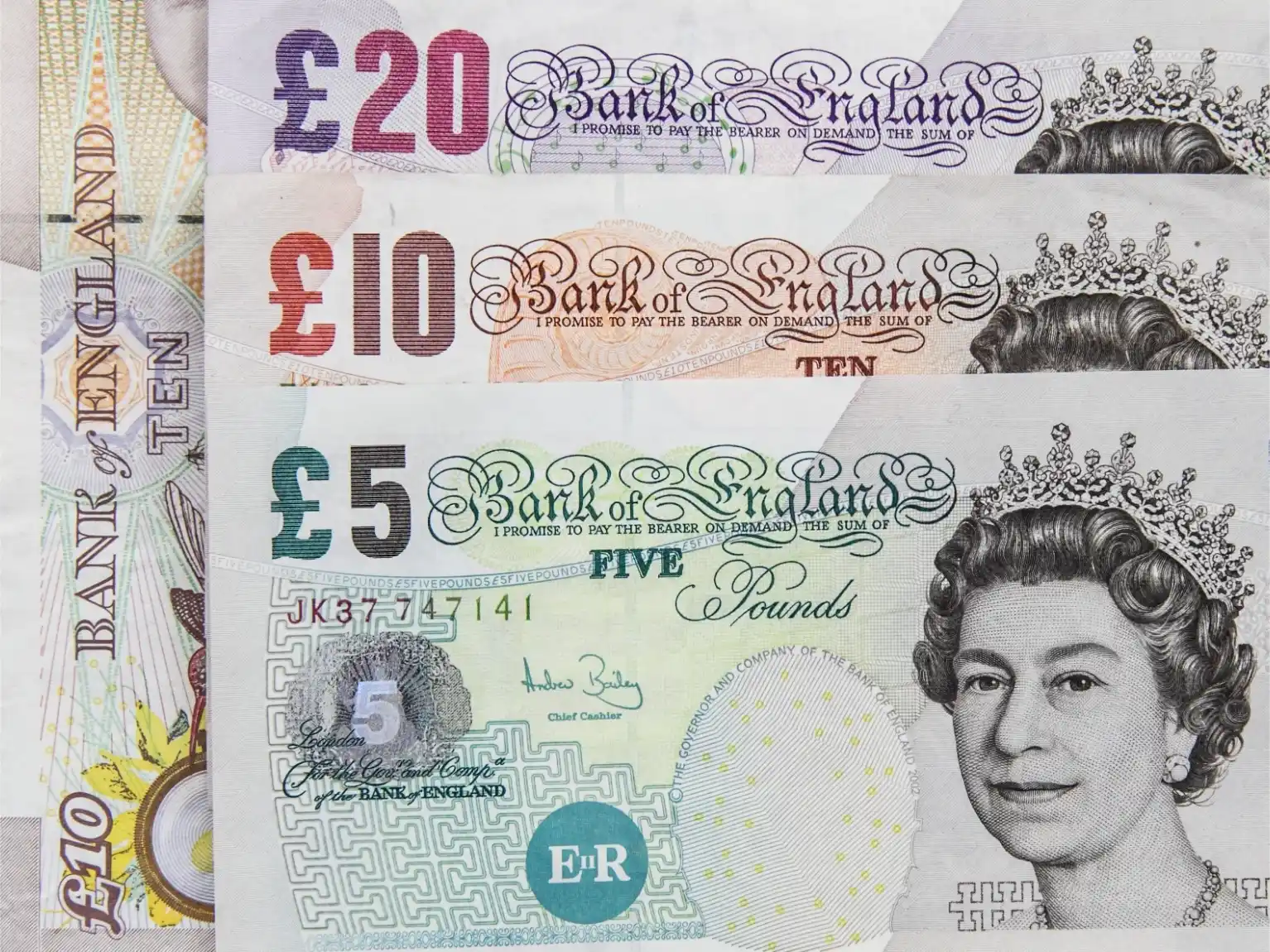 British Pounds Cash in London
British Pounds Cash in LondonA very important step you must know is the type of currency and method of payment London uses. The currency is British Pounds (£ - GBP). Cash and cards are accepted all over the city. Banks are easy to find, and there are several ATMs scattered throughout London.
Contactless payments are widely used. You can also pay using your phone through services like Apple Pay or Google Pay. While cash is still accepted, London is becoming increasingly cashless so even small businesses may prefer card or contactless payment.
💱 Currency Exchange Tips
- Avoid using airport exchange counters as their rates are usually poor.
- If you're taking cash, get it from your home country or use a local ATM once in London.
- When using an ATM or paying by card, always choose to be charged in GBP (not your home currency) for better exchange rates.
💳 Card Payment Info
- Visa and Mastercard are widely accepted
- American Express is accepted in some places, but not everywhere
🔗 Find out everything about the Currency in London.
7. How to Use London’s Transport
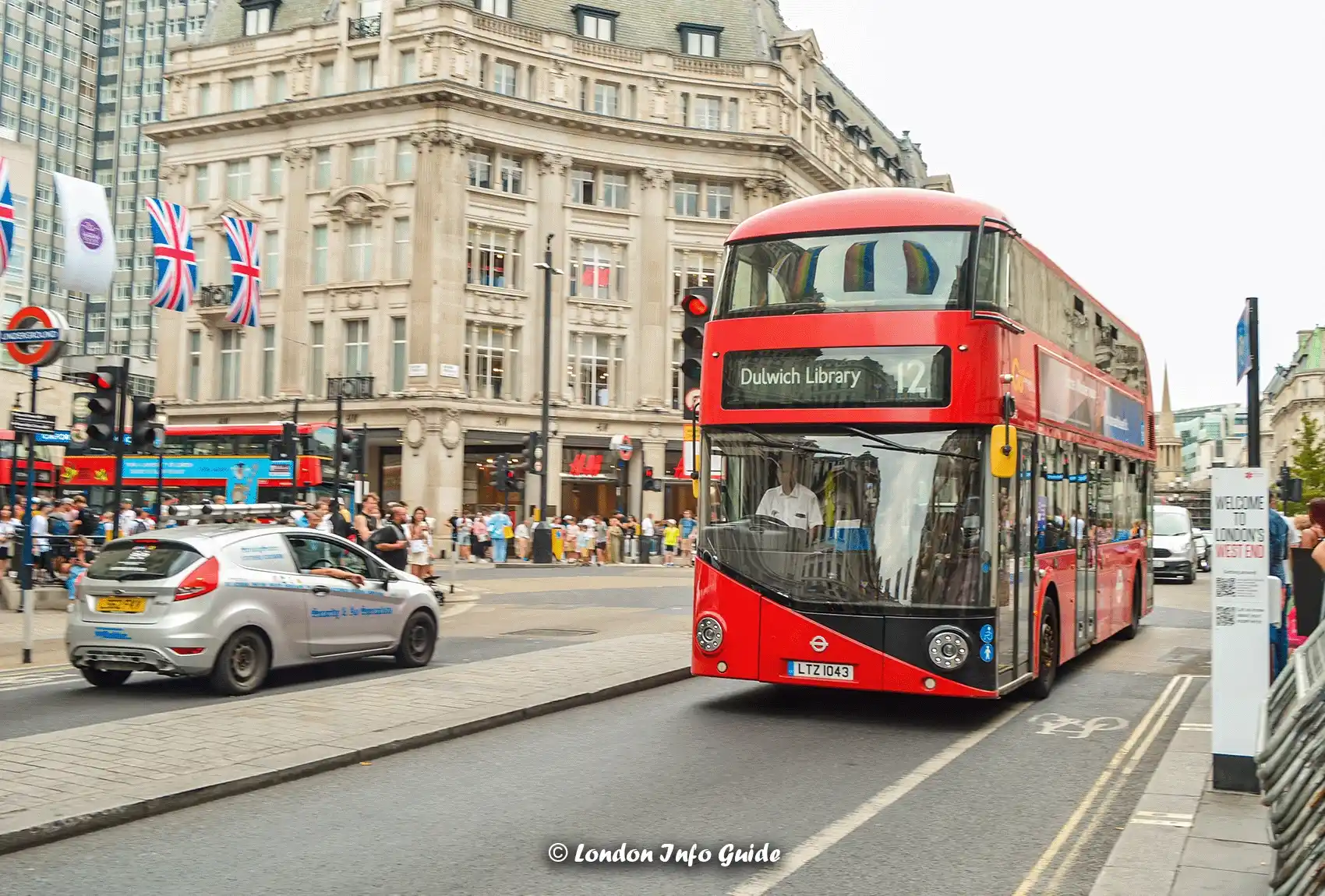 Classic Red Bus in London
Classic Red Bus in LondonWhen it comes to transport, there are some key things to know before visiting London that will save you time and money.
The transport system is something you will definitely use on your holiday in London. It is widely used and super efficient. We always use the Underground (Tube) when we go to London as it’s easy to get around. The Underground, commonly known as the Tube, is the main way to move across the city.
Yes, it can be costly when used frequently, but it saves you from dealing with traffic. Walking is also a great way to get around and can help you save money, especially if you're staying in a central area.
🚍 Types of Public Transport in London
- Underground (Tube)
- Bus
- Tram
- Train
- Water bus services like the Thames Clippers (on the River Thames)
💳 Tickets & Payment
Oyster cards are the way to go when using mass public transport.
- You can also use contactless bank cards, Apple Pay, or Google Pay
- All of these work the same and apply daily fare caps
- You don’t need to buy separate tickets, just tap a card or phone and go
📱 Helpful Apps for Getting Around
- Citymapper – excellent for live routes and step-by-step directions
- TfL Go – the official app for Transport for London
🔗 Read our full guide on how to get around London.
How Many Days In London
There is so much to discover in London and its endless wonders can make getting to know it a challenge! Are you unsure how many days you will need? To ensure you make the most of your time exploring this dynamic city, we've developed multiple itineraries for your planning.
1 Day | 2 Days | 3 Days | 4 Days | 5 Days | 6 Days | 7 Days | 10 Days | 4 Day Christmas Itinerary | Trip To London in December
8. Budget Smartly: Costs to Expect
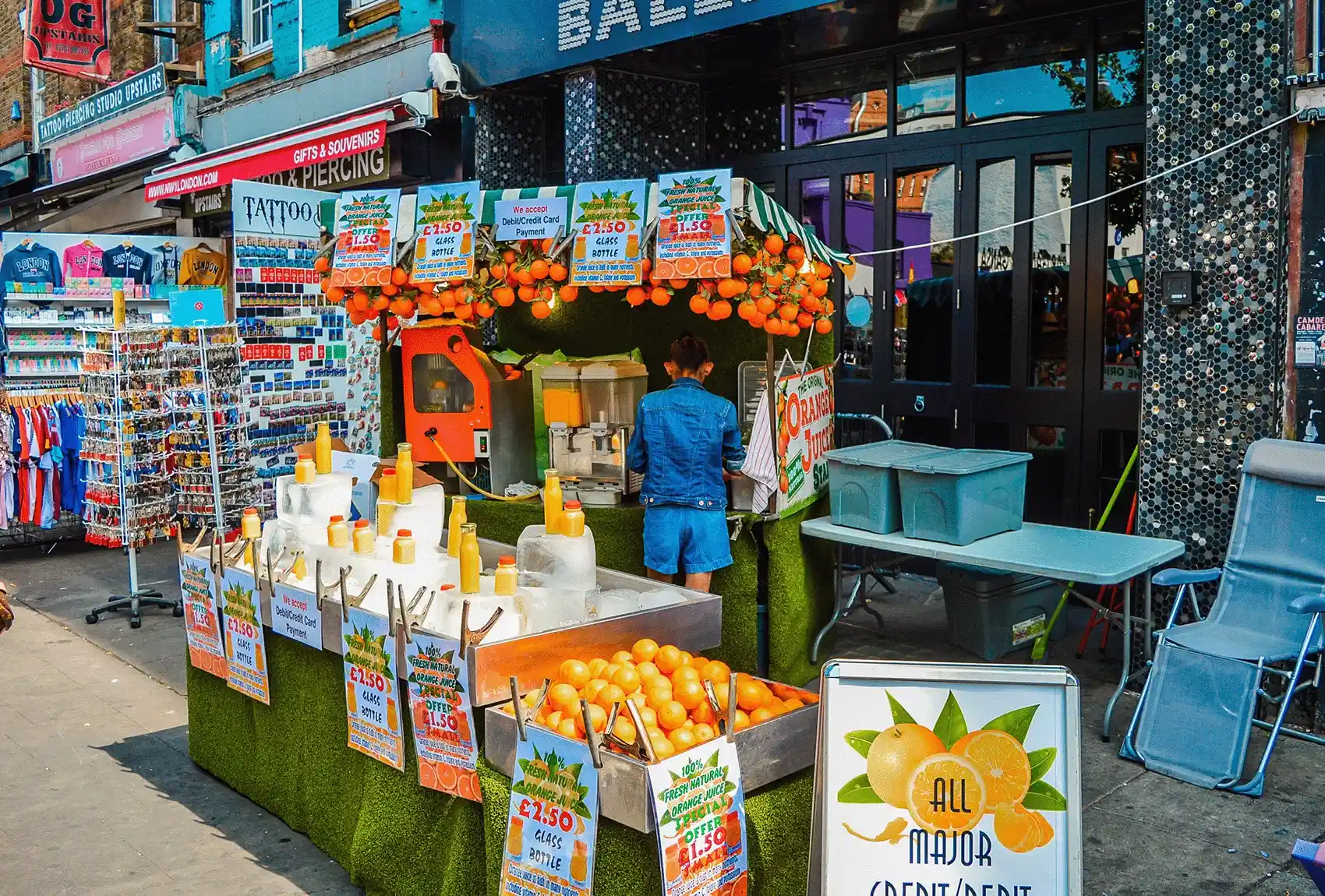 Street Market in Camden London
Street Market in Camden LondonLondon can get pretty expensive if you don't watch your budget. What we do when going to London is set an amount aside and use that for daily costs. This does not include expenses for flights and hotel. Try to track your spending with your phone. We use Revolut, where transactions are shown immediately after purchases. If Revolut isn’t an option, apps like 'TravelSpend' can help you monitor your spending while on the go.
Besides using budgeting apps, you can also plan by knowing how much you'll likely spend each day.
📊 Average Daily Costs
- Budget travellers: £60–£100 per day
- Mid-range travellers: £150–£200 per day
This covers food, transport, and attractions.
🆓 Free & Budget-Friendly Activities
- Free museums and galleries
- City parks and markets
- Free walking tours
🍽️ Eating on a Budget
- Meal deals from Tesco or M&S often include a sandwich, snack, and drink for around £3–£5 — perfect for saving on lunch
- Budget-friendly chains like Pret, Greggs, and Wetherspoons offer cheap and tasty options
- Look out for lunch specials or early dinner menus
🚇 Transport Tip
Using an Oyster card or contactless payment applies a daily fare cap, so you won’t overspend on transport even if you use it multiple times a day.
9. Stay Connected: SIM, WiFi & Travel Apps
 Waiting at Leicester Square Station
Waiting at Leicester Square StationToday many network operators offer roaming for free in other countries. When we travel to the UK, we have free roaming up to a certain amount of GB as part of our plan. However, if using your home SIM card is too expensive, you can always buy a local SIM card. Always try to find the most efficient and reasonably priced option, especially if your holiday is a long one.
Since the UK is no longer in the European Union, some EU providers may now charge extra for roaming. Make sure to check your mobile plan before travelling.
📱 Major UK SIM Providers
- EE | Vodafone | O2 | Three
If you have a modern smartphone, eSIMs like Airalo or Holafly are great alternatives, perfect for tech-savvy travellers who want to avoid the hassle of swapping physical SIM cards.
📡 WiFi Access Around London
Public WiFi is widely available across the city. You’ll find it in:
- Cafes and restaurants
- Museums and galleries
- Major stations and some areas of the Tube
🔐 Security Tip
Use a VPN when connecting to public WiFi to help protect your personal data and browsing activity.
🔗 Check out our trusted tools and platforms on our London Travel Resources Page
10. Stay Safe & Avoid Tourist Scams
 Busy Oxford Street in Summer
Busy Oxford Street in SummerAlways take the least amount of belongings with you to London. What do we mean? Essentials like your mobile phone, passport, credit cards, and any required visas are necessary. But items such as expensive jewellery, electronics, or high-end accessories are better left at home.
Why? Because pickpocketing does happen, especially in crowded areas. It’s safer to leave non-essential valuables behind.
🚨 Common Pickpocketing Hotspots
- Crowded areas like Oxford Street, Soho, Piccadilly Circus, and beyond.
- The Tube during rush hour
- Popular attractions like Big Ben and Buckingham Palace
You don’t need to bring only cheap items, just avoid carrying anything you’d be devastated to lose. When heading out for the day, it’s fine to leave certain things like passports or extra credit cards securely in your accommodation.
🪪 ID & Emergency Tips
- Always carry some form of ID, like a government-issued ID card
- Keep a photo of your passport on your phone
- Try to carry one physical ID just in case
- UK emergency number is 999
🎯 Scams to Watch Out For
- “Friendship bracelet” scams
- Fake donation petitions
- Unofficial ticket sellers near attractions
This advice applies whether you are exploring during the day or heading out at night. A little extra caution goes a long way.
11. Know the Local Etiquette
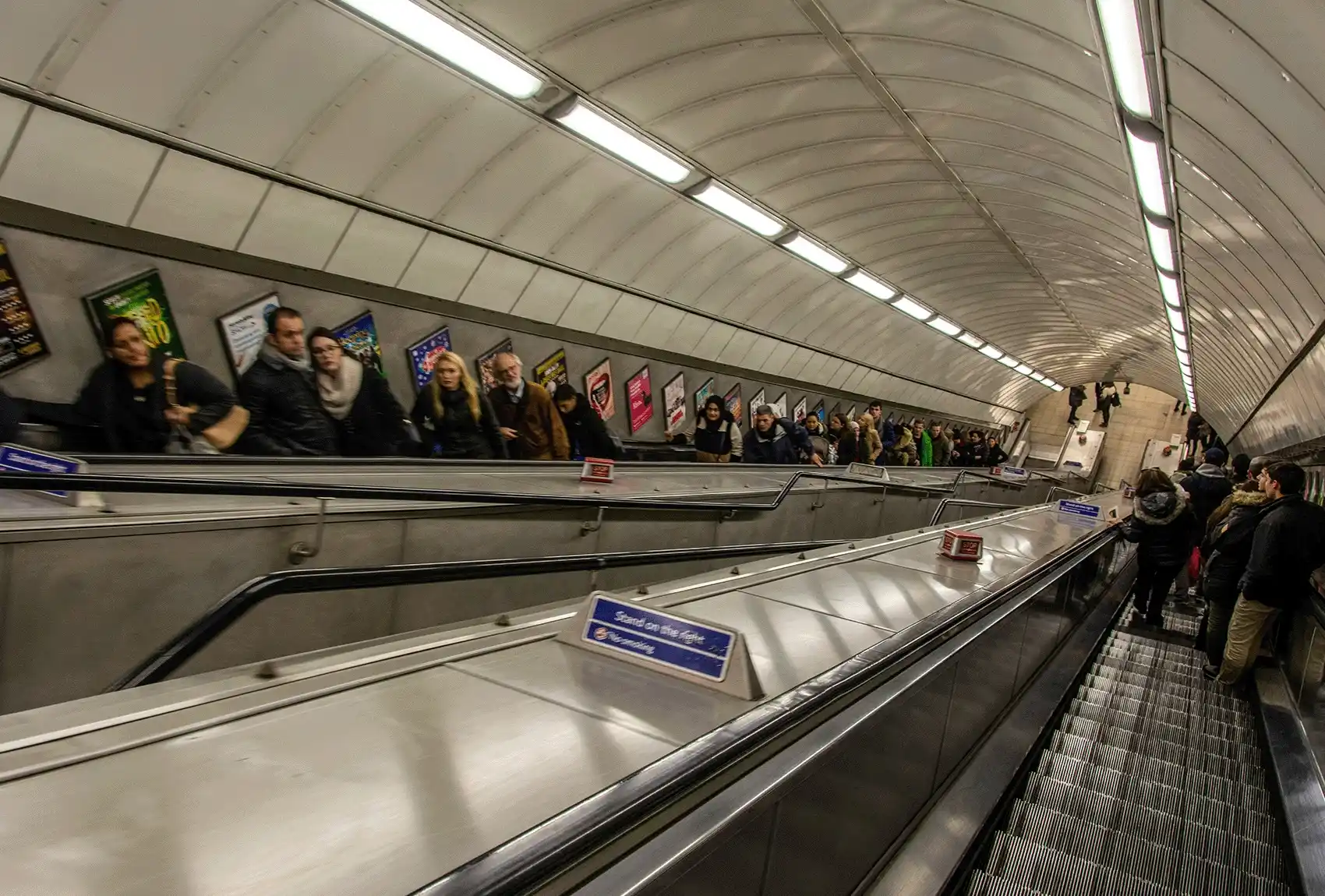 Stand Right on Escalators
Stand Right on EscalatorsIt is important to understand a few cultural norms in London so your trip will run smoothly and you will be able to blend in and enjoy your stay. Locals are generally polite, but reserved. The locals respect personal space and stay in their lane (literally and socially).
🇬🇧 Etiquette Tips for Everyday Life
- Always wait your turn in line, whether you are at cafes, buses, train platforms, or anywhere else. Cutting lines is extremely frowned upon.
- Say please and thank you often. You'll hear these all the time, even when getting off a bus.
- Keep your voice low in public. Loud conversations on the Tube or in restaurants can turn heads — and not in a good way.
🚇 Using the Underground (Tube)
- Stand on the right when using escalators. The left side is reserved for people in a hurry - this is non-negotiable.
- Do not chat with strangers on the Tube. A polite smile is fine, but most people stay to themselves — especially in the morning.
- Keep your right foot up a staircase or platform, especially during rush hour.
🍻 Pub & Tipping Culture
- Order at the bar. The majority of pubs do not provide table service, so the food and drinks are ordered at the counter.
- Tipping is not expected in pubs or cafes, but rounding up is appreciated.
- If the service is good in a restaurant, a tip of around 10% is appreciated. In contrast to the US, it is not mandatory.
A little politeness goes a long way — and following these simple cues will make you feel right at home in the city.
12. Book Attractions in Advance
 Hogwarts Express Studio Tour - Platform 9 3/4
Hogwarts Express Studio Tour - Platform 9 3/4The most popular attractions in London tend to book up fast at the last minute, so don't leave it too late. It's always a good idea to book online a few days before, especially for top attractions like the London Eye, Tower of London, or Harry Potter Studios Tour, which sell out fast.
If you book in advance, you'll avoid long queues and may even be able to save money with online discounts. Some sights, like the Sky Garden, require reservations in advance - you can't just turn up without a reservation.
💡 Booking Tips
- Trusted platforms like GetYourGuide and Tiqets are great for flexible ticket options
- Book early during busy seasons like the summer and Christmas holidays
You'll have less stress, shorter lines, and more time to enjoy your trip if you book early.
🔗 These top things to do are key things to know for your trip to London.
Frequently Asked Questions: London Essentials For Your Travels
What are the most important things to know before visiting London?
What are the most important things to know before visiting London?
It is very important to know that planning your trip is essential, especially if you are a first-timer. London is a fast-paced, diverse city with lots of attractions. Its cost, climate, and transportation certainly come as a surprise for those who have never visited.
What is the best time to visit London?
What is the best time to visit London?
In the spring and autumn season, the weather is milder so fewer crowds can be found. During summer, it is always very busy and lively, but in winter it is joyful and festive.
Do I need a visa or travel authorisation to visit London as a tourist?
Do I need a visa or travel authorisation to visit London as a tourist?
It depends on which country you are travelling from. As of April 2025, many travellers are required to purchase an electronic travel authorisation (ETA) to enter the UK. Some may also need a VISA. We highly recommend you check the UK Government website before you book.
Is London expensive for tourists?
Is London expensive for tourists?
Yes, it can be, but you have full control over your spending. Booking early already gives you a great benefit on saving on flights and accommodations. The rest is up to you on how to budget. There are many free activities in London, which means you don't have to break the bank to have a nice trip. Set a daily budget and stick to it.
What is the easiest way to get around London?
What is the easiest way to get around London?
The Tube (Metro), bus and trains are the easiest modes of transport to get around London. Use contactless cards, Oyster Cards and relevant apps to get around easily.
Can I use my phone and SIM card in London?
Can I use my phone and SIM card in London?
You can use your phone in London. It is very important to check your mobile plan with your provider to ensure you do not receive an excessive bill on any calls and internet you use.
What should I pack for a trip to London?
What should I pack for a trip to London?
You should wear layered clothing, bring a small umbrella, wear comfortable shoes, and be prepared to deal with rapid changes in the weather. Oh, and don't forget a plug adapter (UK Type G).
Is London safe for tourists?
Is London safe for tourists?
In general, London is a safe city, but as with any major city, you should be careful with your belongings in crowded areas.
Do I need travel insurance for London?
Do I need travel insurance for London?
A travel insurance policy can provide coverage for unexpected expenses such as medical care, cancellations, or lost items. Always check with your insurance provider what you are covered with.
We hope this guide has given you a clear insight into the most important things to know before visiting London. From helpful tips to practical suggestions, you're now better prepared to enjoy your trip to the fullest.
Don’t forget to explore more of our website for additional London travel tips, local insights, and helpful recommendations.
Want To Share This Page On Pinterest? Pin It Here!
